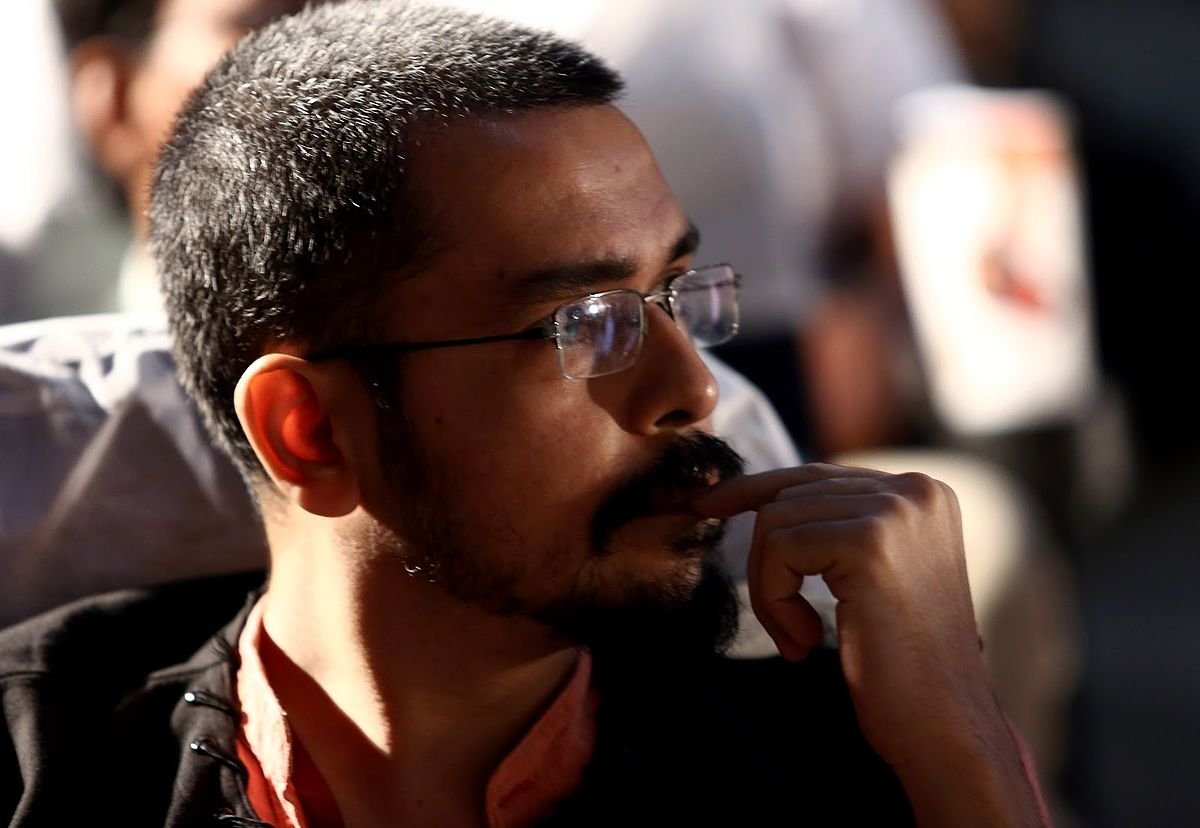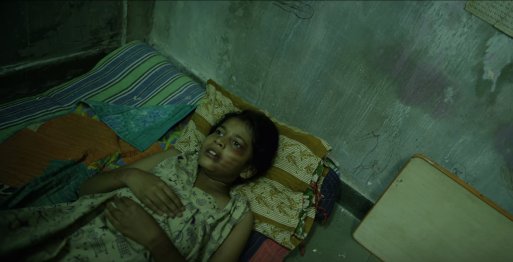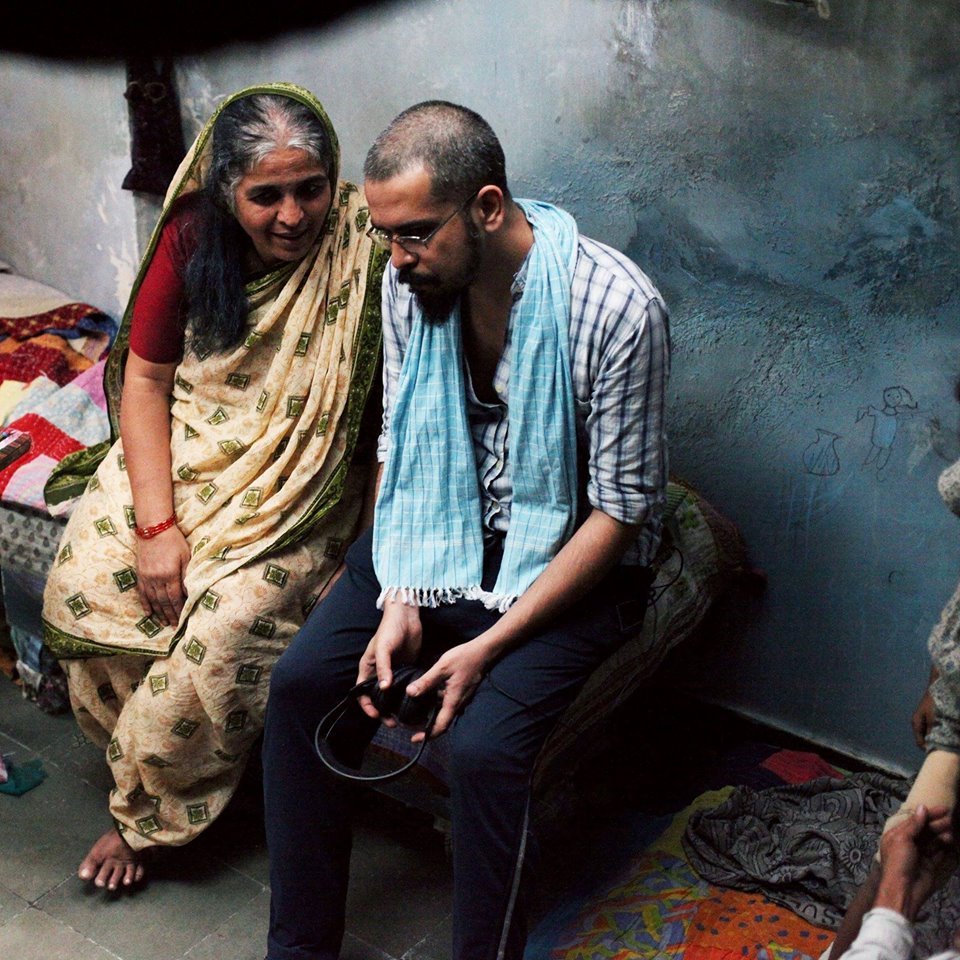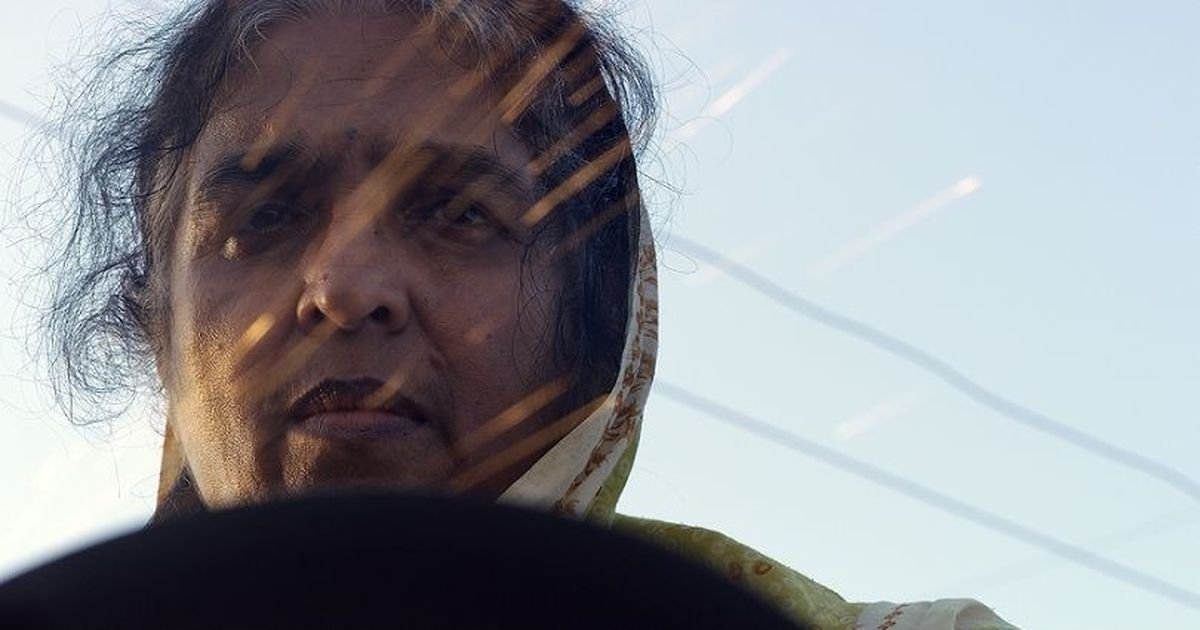The opening scene of Ajji, the Indian film that is winning laurels in festivals across the world, almost cripples you with dread. An aged woman (Sushma Deshpande) is limping down the squalid lanes of a Mumbai slum, calling out her granddaughter’s name at the dead of the night.
Even before you see little Manda (Sharvani Suryavanshi) lying half-dead in the sewer, you know you have been yanked into the innards of something dreadful. On the book, Ajji is about the rape and brutalisation of an eleven-year-old and the way her grandmother avenges the assault. But a rape film is never really a rape film. Director Devashish Makhija is acutely aware of that. Which is why he chooses to make Ajji a film about urban privilege and the way it blinds our worldview. In an exclusive interview with ScoopWhoop News, Makhija, who makes short films, writes children’s books and has written the script for several movies, tells us why Ajji is more “a furious response” than a film.

First of all, tell us how Ajji came into being.
Like all stories, this one too is a response. A response to what we’re seeing and hearing more and more in the world around us. Men make the rules in this world. Perhaps always have. We’ve reached a point where religion, politics, business, sport, entertainment, every sphere is ruled by men. Men are celebrated for their success more than women are. Women are seen as silent supporters, clapping from the wings. It might be 2017, but apart from the odd token celebration of the female energy, strength and spirit, women are still largely not consulted in active decision making. This has made men disregard a woman’s will. If she says ‘no’ it is not taken seriously enough. If she demands equal status she is reminded again and again of the tenets of class, religion and society – all of which were made and set in stone by men. And if she challenges this male authority, the woman is often ‘shown her place’ – not least of all, by being subject to Rape.
Ajji was a direct and furious response to all of the above.

Bollywood has seen a spate of rape-revenge drama in the past one year, Sridevi’s MOM and Raveena’s Matr being some of them. Did you fear that your film will be clubbed with them?
We started writing the script in March last year. At the time I didn’t even know the films you mention were being made. By the time their trailers emerged we were done shooting. There’s no turning back from that. So I merely shut out all those thoughts, and plodded on.
The most striking thing about Ajji is how visceral it feels. It feels you are talking from the guts. An Assamese filmmaker I know, while hailing it, said that Ajji feels like all your anger has been distilled into a film. Where does this anger come from?
From years of observing (and perhaps being deeply affected by) the inequality I see around me. Everyone not getting the same share of public resources, access to justice, and basic human rights makes me angry. I ought to have done more about it than I have, I admit. I tried. But I realized early on that I don’t have the patience, steel heart, calm mind and initiative that an activist or public lawyer or political leader needs. So the anger keeps simmering within. Its only outlet is through my stories. The filmmaker you mention feels it’s all been distilled into this one film. I wish it were true. But I sense more of it inside. I don’t know where it might lead me after this.
It’s interesting how you went against the prototype of a rape-revenge drama by focussing very little on the act of rape but almost fetishising the revenge. Could you elucidate on that?
We have read, seen, heard about enough rapes in the mainstream media to be able to imagine how horrific the act can get. I didn’t need to recount such an episode for the viewer. The viewer today – whether they like it or not – has turned voyeuristic. We get more brutal news and information daily than we know how to deal with. And it causes us unrest, fury even. With this film, I tried to tap into that reservoir of fury already extant within the viewer. The journey of revenge then becomes one (I hope) the viewer already relates with.
Fetishising it perhaps happened by default. When a woman such as Ajji is consumed by her fury at half a century of relentless injustice, what other choice does she have but to be obsessed by what is driving her. To a woman like her nothing else of her life as she knows it would hold her attention anymore.

There are certain sequences in the film where it seems you are in danger of almost alienating your audience. The scene where Dhavle, the rapist, assaults a mannequin tells us all we need to know about him, but it’s protracted and I have a feeling a lot of men I know will find it titillating. Was that intentional?
You are the first man to insinuate ‘titillation’. My DOP, my editor, and I went out of our way to ensure only the horror of the act transfers. The choices of what to show and what to evoke were taken with much care. When the scene begins though there is some ‘play’ between Dhavle and Umya that does elicit a chuckle or two. I needed that. When a man in the audience chuckles at the top of such a scene, then when he realizes just what it is this scene is intending, he often gets plunged into a guilty silence. And guilt is something I wanted to slap all men in the face with. We are all complicit in every rape in every corner of the world because we allow it by not trying actively enough to stop it. And I was hoping the scene with the mannequin would achieve that.

Ajji is fascinatingly androgynous in the last sequence. Was it intentional to shorn her of everything that we consider maternal?
She has gone past a point of no-return by then. Although she was driven down this path by the grandmother within her, by the time she’s reached this point of cold-blooded intent, she is no longer the grandmother we saw in the beginning. This reaches its heartbreaking culmination in the last scene – where she’s lost the grandchild who she did all this for. Manda – more than anyone else – recognizes this, and grieves the Granny she has lost. Her parents have now finally taken the place of her Granny. Ajji will never have her grandchild’s love all to herself again. To make Ajji shed her femininity to some extent in the climax was to foreshadow the death of the ‘mother’ in her.
And that is the biggest irony perhaps of this story – the very instinct that drove her to avenge her child, is the instinct she is required to sacrifice to complete the task.
Finally, tell us about yourself. Not many know that you have written several books before. Also, you have been struggling for almost a decade to make that film of your dreams in the industry. Is Ajji that film?
No, it’s not. I’ve written several films before Ajji that are yet to get made. At every step, a different film is that dream film. In fact, at every step, we even keep recalibrating our dreams. Next year my dream is to finish my novel which is as yet half-undone. I wouldn’t use the word ‘struggle’ though. It’s a journey. For each feature film that didn’t get made I wrote a short story, or a children’s book, or a few poems, did a piece of graphic art, or made a short film. It was a discovery more than anything else. Stories are stories. I believe they shouldn’t be limited by a medium. If I don’t get the opportunity to make a story into a film I’m always holding onto it, looking for an opportunity to manifest it as something else. The opportunity always arrives. It is up to me to be ready for it when it does.

















